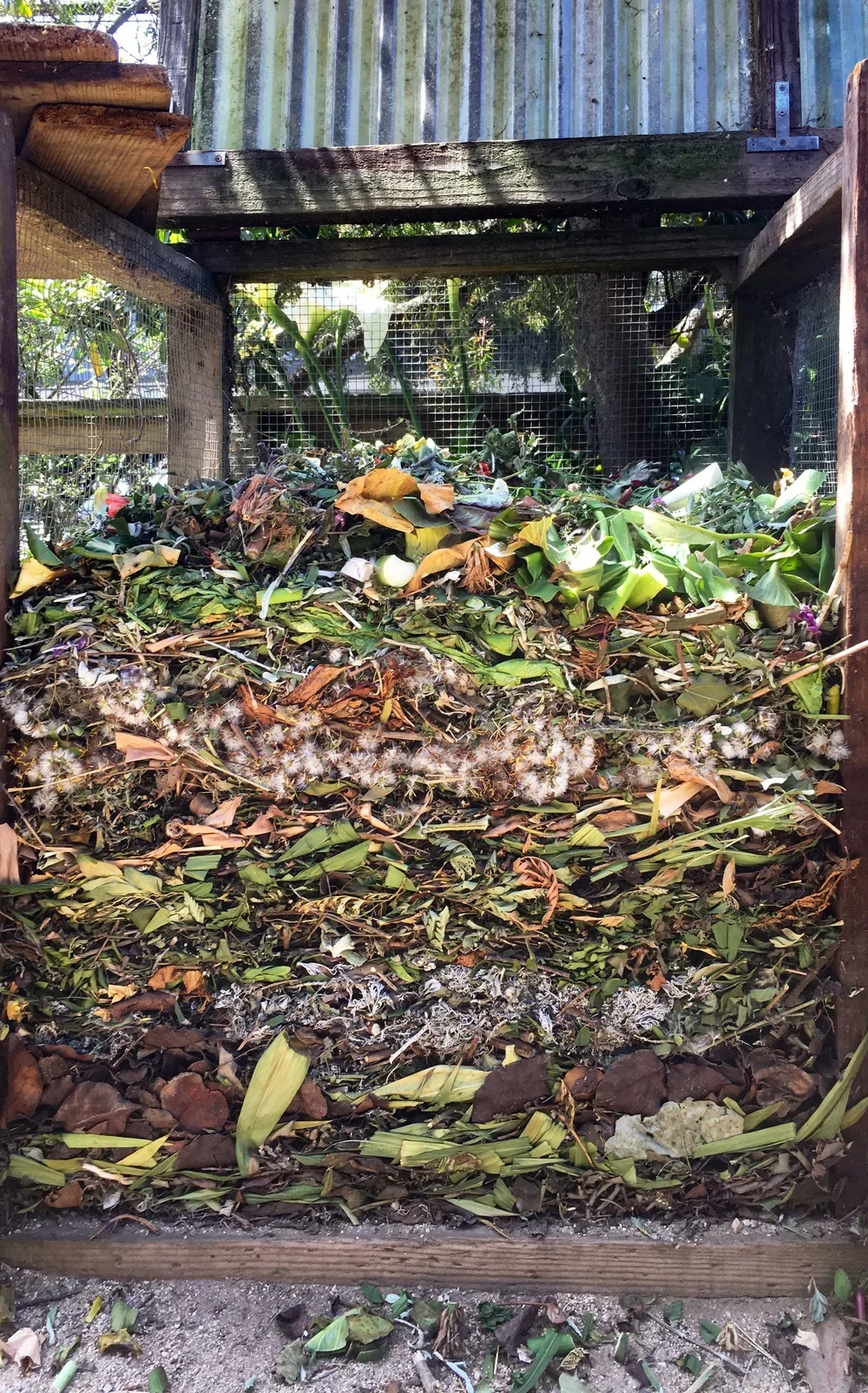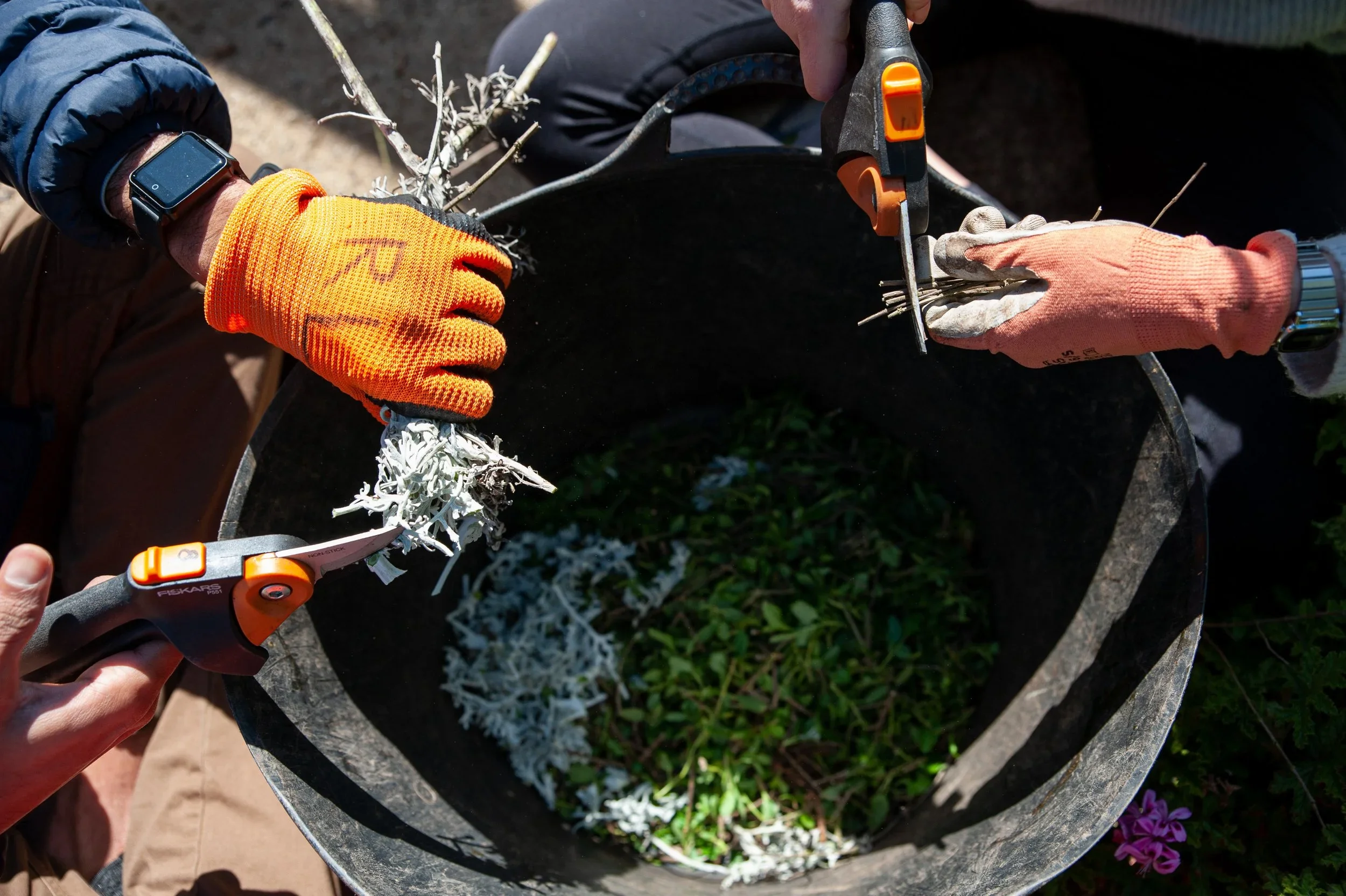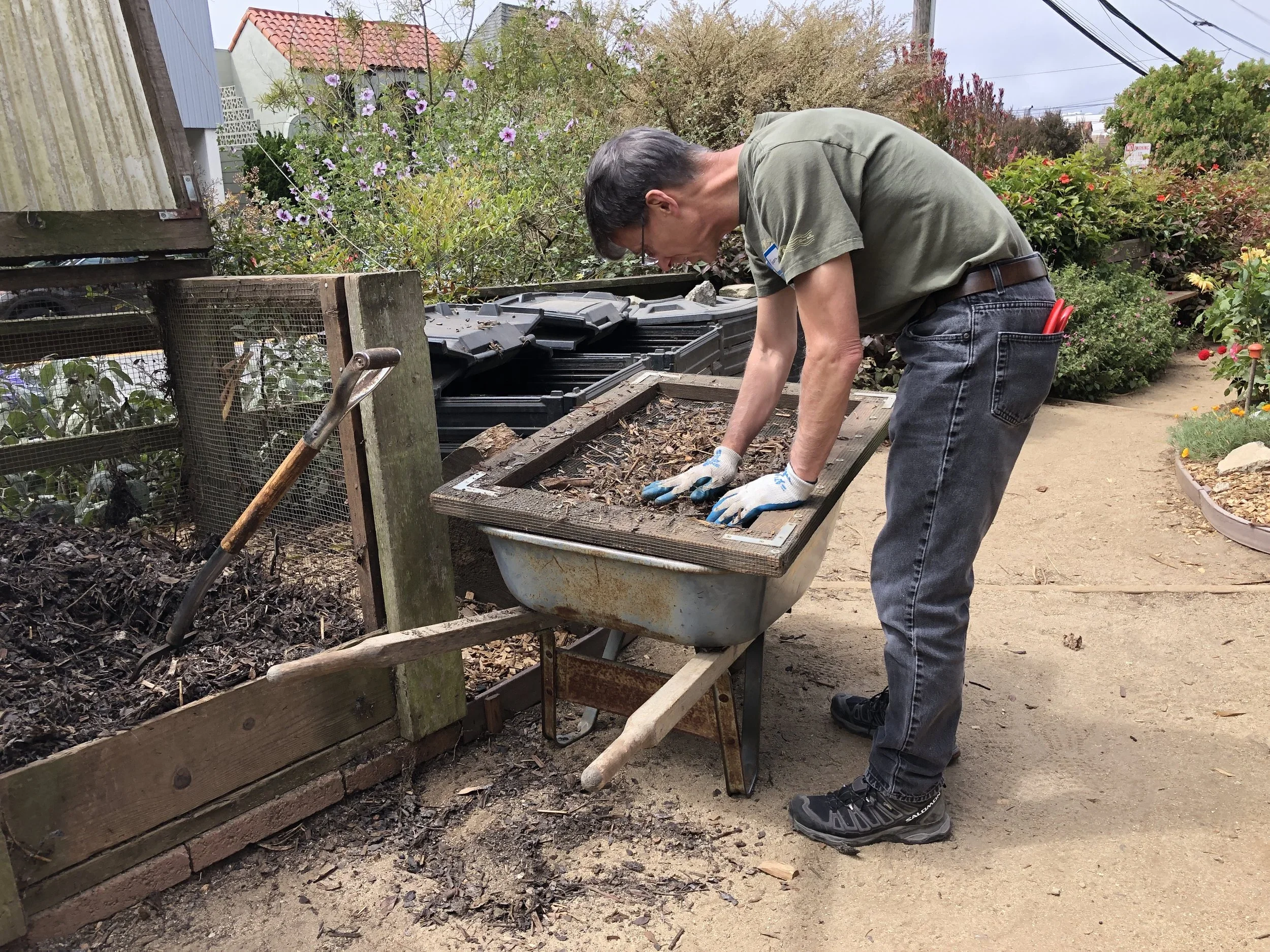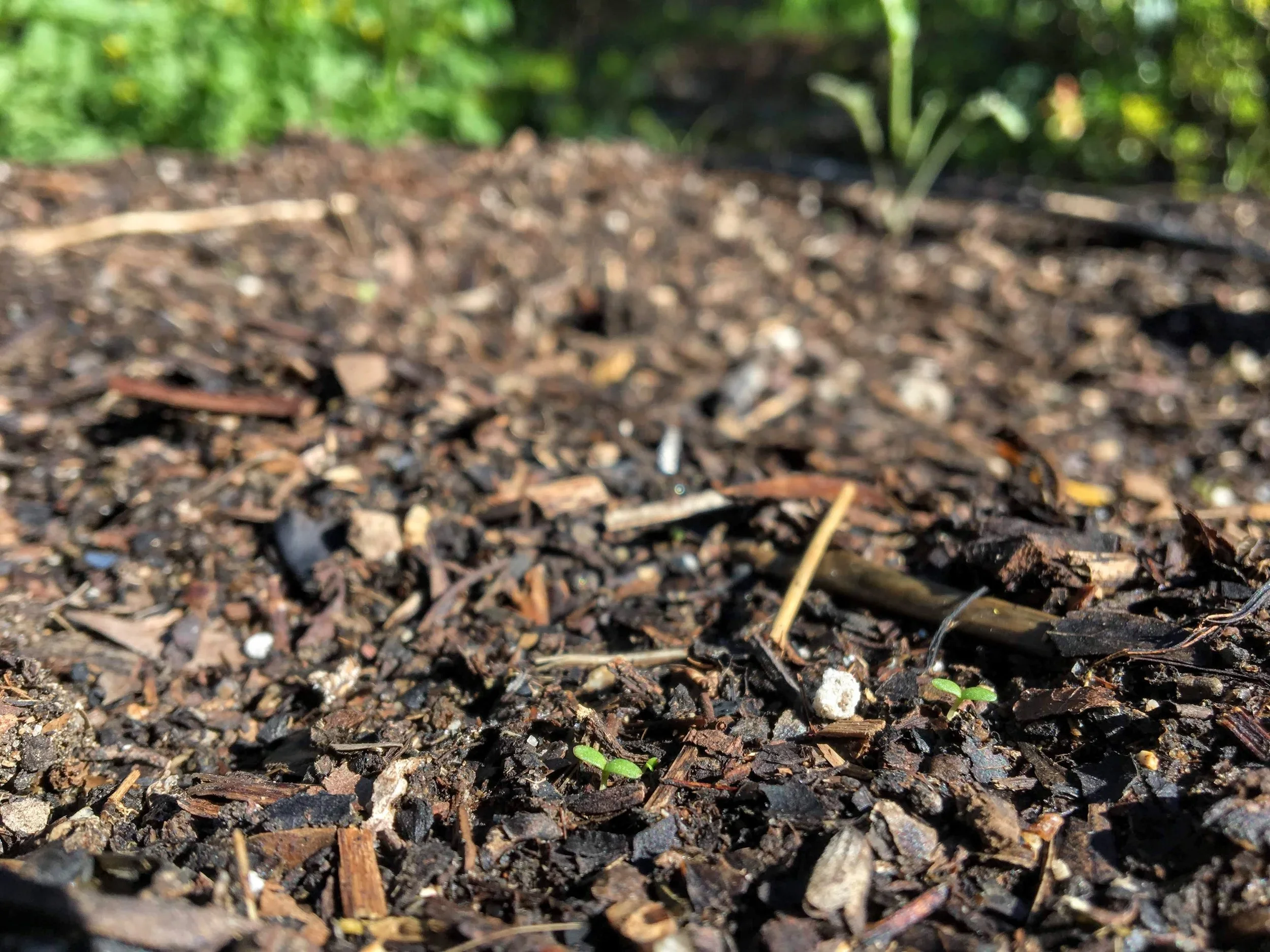Welcome to the GFE
Self-Guided Tour!
📍Stop 1: Compost
Stop 2: Victory Garden
Stop 3: Native Backyard
Stop 4: Carbon Sequestration
Stop 5: Shade Garden
You have found our 3-bin Compost system.
This is the heart of the garden.
It is a closed-loop system where, over time, clippings and debris from the garden turn into compost, a nutrient-rich soil amendment through the process of decomposition.
Decomposition is a natural process that happens all around us. Think of leaves that fall to the forest floor – eventually, these leaves completely decompose thanks to all kinds of organisms, especially fungi, bacteria, and invertebrates.
As a result, nutrients are returned to the soil and in turn benefit the parent trees. This natural process happens much too slowly for eager gardeners, so we speed up the process by building our own composting system.
In this three-bin compost system, we take organic material from the garden, such as pruned leaves and stems or fallen leaves and add manure from a local source, introducing the microorganisms which will do the work of decomposing this pile over the course of several weeks.
Bin #1
Fresh plant material from the garden gets chopped by hand into small pieces. Layers of this fresh, green, nitrogen-rich material are then layered with brown, carbon-rich material like dried leaves.
Bin #2
The organic material is mixed with water and manure or coffee grounds. Through the activity of fungi, bacteria, and invertebrates, the mixture heats up and begins to decompose. At its peak, compost should maintain a temperature between 135 and 160 degrees Fahrenheit for at least a few days.
Bin #3
After a period of active, hot decomposition, the compost gets moved to the third bin where it slowly cools down as the organisms finish decomposing the greens and browns. From there, we sift out the larger sticks to be used as nutrient-rich mulch, and use the finer material as compost in our veggie beds and newly planted perennials.
The resulting product is not soil, but decomposed organic material packed with nutrients that provide plants with the building blocks they need to thrive. Amending our native sandy soil with compost is essential to building healthy soil, which in turn promotes healthy plants and reduces the need for synthetic fertilizers or pesticides. Compost also has water-retention properties, allowing plants to absorb and hold onto water longer and lessening pressure on our water supply in the Bay Area.
What will you learn at the next stop?
📍Stop 1: Compost
Stop 2: Victory Garden
Stop 3: Native Backyard
Stop 4: Carbon Sequestration
Stop 5: Shade Garden






